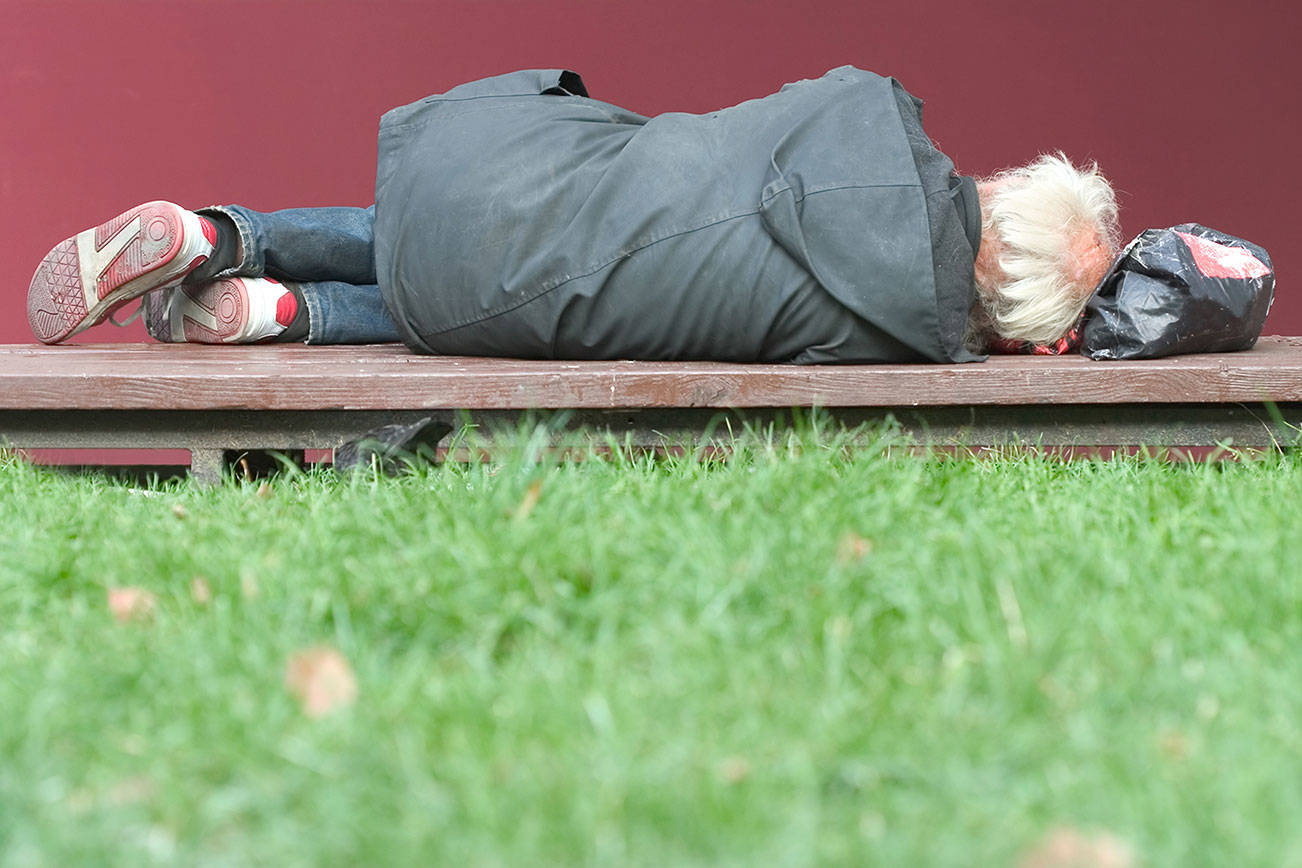Every day, staff at Valley Cities out-patient clinic on I Street Northeast see at least 100 homeless people.
Most have lost their jobs, were broken by a costly medical condition, or were just one paycheck away from being homeless, said Ken Taylor, executive director of Valley Cities.
Out of the 12,000 people who visited Valley Cities in 2016, Taylor said, at least 2,000 were homeless. He estimated that 90 percent of the city’s homeless are Auburn residents, and that on any given night, at least 200 are kids.
But what Taylor said he finds most disheartening is the number of older people who are being evicted from housing and put out on the street.
“I was raised to believe that was just fundamentally wrong, and nobody puts grandma out on the street in a wheelchair,” Taylor told City leaders Monday during his update on the status of the pending day shelter operation. “And yet that’s happening right here, and there are plenty of documented instances.”
Unfortunately, Taylor continued, many of those older folks are clients of Valley Cities, and as they age, many develop dementia or Alzheimer’s, and they start to do things like hoarding.
“That becomes a health issue for tenants living near them. Ultimately, the property manager has no recourse but to literally put grandma out on the street.” Taylor said.
The top action item to come out of the Mayor’s Task Force on Homelessness when it wrapped up its work in April 2016 was to increase shelter options for homeless people in Auburn and beyond.
That’s happening.
As the City of Auburn recently announced, in partnership with Valley Cities and the Auburn Food Bank it will operate a day shelter on a vacant lot Valley Cities has donated temporarily at 2536 I St. NE. to provide room for the construction trailer the city is leasing. Its hours of operation will be 9 a.m. to 5 p.m. Monday to Friday, with the hope that at some point in the not-too-distant future there’ll be enough money to make it a seven-day operation.
“We think it’s a great location because of the number of social service agencies that are nearby, like DSHS, and WorkSource,” Taylor said, noting it’s also convenient to the main transportation line along Auburn Way North.
Valley Cities will provide the use of its Common Building to provide nighttime services and reallocate its outreach worker staff to support shelter clients. The food bank will provide staff, food and resource connections for the day sheltering operation, and Puget Sound Energy will provide temporary power to the site.
Taylor said Valley Cities will limit its part in the operation to supplying the land and providing behavioral and mental health services. The rest he said, the agency will leave to entities with experience in such operations, including the Auburn Food Bank and Catholic Community Service, perhaps the latter of which could run the night shelter.
“It’s not a permanent solution,” Taylor said, of a shelter that will last only 18 to 24 months. After all, Valley Cities still has plans to build on that parcel.
“We have a personal passion for trying to find a way to address this ever-growing problem, and … we think we have an obligation as a compassionate community to do something for these folks,” Taylor said.
Taylor is eager to clear up misconceptions about the day shelter that have arisen because of its proximity to Cascade Middle School mere blocks away.
“We have invited Cascade staff to Valley Cities in August for an open house to try dispel some of the misconceptions and misinformation about the people we propose to see there. We know – and I suppose you know – that there are homeless kids today attending Cascade Middle School; there are homeless kids literally living on the river in our city, walking to Cascade,” Taylor said.
Debbie Christian, executive director of the Auburn Food Bank, noted that the food bank, Valley Cities and Nexus (formerly Auburn Youth Resources) were all launched by people who at some point sat around a table to talk about fixing a problem.
“Here’s a problem we have in town today, and we want to fix it,” Christian said.
Christian said the day shelter will be “a place for connection, a place to help people get out of their current situation and find a place that would be safe for them, that would give them some chances. They are coming out of the weather for the most part. This can connect them to jobs and assist with job training.”
There’ll be a laundry. And that prized thing: a shower.
Auburn Police have been working with Valley Cities to put together a shelter code of conduct but other than that, said Police Commander Mike Hirman, the only police activity will be in response to reported criminal activity.
Councilman Rich Wagner asked Taylor if he had any plans for security staff or his staff, as opposed to police.
“When we opened Valley cities Phoenix Rising, we learned a lot of lessons. We now have professional security there, 16 hours a day. We’re prepared to expand that if that’s appropriate. We’ll do whatever’s necessary to keep both the children in the neighborhood and our clients safe,” Taylor said
.



